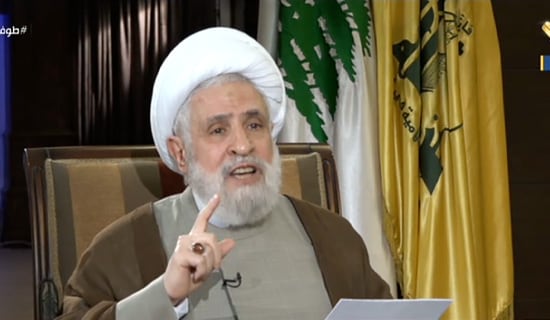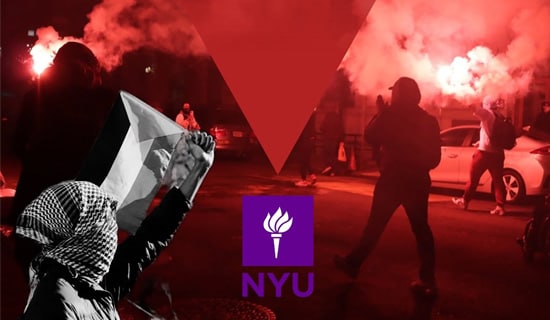Upon hearing the word "Russia," almost everyone immediately thinks not of a beautiful country with a sophisticated culture and educated people, but rather of the most corrupt nation in the world, the place from which tens of billions of dollars flow into offshore accounts every year before being spent on bribes and illegal financial operations across the globe. This overall impression is correct but describing its core as "corruption" might be at least a bit misleading.
The word "corruption" has its own strict meaning. Transparency International defines it as the "abuse of entrusted power for private gain."[1] Some political scientists go further, specifying that it means seeking "private gain rather than the purpose for which that trust or responsibility is conferred,"[2] or describing different types of gains that might be appropriated by corrupt officials.[3] Almost no one focuses on the first part of the definition, namely on the word "abuse," since all the Western political philosophers going back to Machiavelli took for granted the fact that the state, or the ruler, pursues the public benefit.[4] Assuming this, corruption is treated as a deviation from a well-established norm – but this approach may not fit Russia's case.

(Source: TASS)
Russia Looks Not Like A "Corrupt State," But Like A "State-Like Corporation"
I would say that Russia, a country with no less than 960,000 public officials and around a tenth of the budget for state purchases stolen (up to 1 trillion rubles, or $30 billion, according to then-President Dmitry Medvedev's 2010 estimate),[5] is unique in its approach to corruption. During 2019, 32,000 corruption cases were recorded[6] in the country with 7,100 officials charged, 5,300 people sentenced[7] and 2.047 billion rubles[8] ($31.6 million) worth of misappropriated funds recovered. This puts the corrupt officials' share in all those sentenced to prison terms in Russia that year at 1.8 percent,[9] and settles an average bribe attributed to a jailed corrupt official at a mere 386,000 rubles, or less than $6,000. At the same time, neither the sudden recovery of 62 million rubles ($960,000) in cash from the house of the State Custom Committee's chief Andrey Belyaninov,[10] nor the call from the Swiss prosecutors, who froze SFr 60 million ($63 million) in the ex-Agriculture Minister Yelena Skrynnik's account in a Zurich-based bank,[11] have been considered something worth further investigation. It seems what is commonly called "corruption" results in Russia not from an abuse of power, but from day-to-day execution of the bureaucratic duties themselves. Russia, I would say, looks not like a corrupt state, but like a state-like corporation, with its main aim being the enrichment of its beneficiaries – President Putin, his friends, appointees, and all members of the "power vertical" from top to the bottom.
The major point I want to make here is that today's Russia cannot be treated as a somewhat special state that does not do enough to combat corruption. It is a system where the public service is a kind of business and its major objective is not the provision of public goods but the increase in the bureaucrats' well-being. The Russian parliament continuously refuses to ratify a part of United Nations Convention Against Corruption,[12] namely Article 20, which targets what is called "illicit enrichment" since, as the Justice Ministry proclaimed, it "contradicts the laws of the Russian Federation."[13] It is really so, since Russian legislation allows the ministers and governors to declare revenues without specifying their sources (as the Chechen leader Ramzan Kadyrov did in April).[14] It sees as natural the cases in which the wives or children of top governmental officials earn hundreds of times more than the officials themselves. The most drastic case is that of Yelena Nekrasova, a spouse of State Duma Deputy Alexander Nekrasov, elected on the Communist Party's list, who earned 676.9 million rubles, or $10.4 million in 2019,[15] or roughly 100 times more than her husband. It is quite normal when the children or relatives of government officials get business contracts from them (even the recent school shooting in Kazan' that left nine people dead, unveiled the fact that the contract for providing security services to local schools was awarded to the company owned by the son of the regional FSB boss).[16] The current Russian system is not "corrupt" – it is designed in a way that allows the officials that effectively own the country to continuously channel public funds into their pockets without breaking the laws of which they approve in their own favor. The means for such enrichment are numerous.
"The State Duma Approved A Law Legitimizing 'Unintended' Corruption"
First and most obvious is the rise of the official costs of the state apparatus. Since 2001, the allocations from the federal budget falling under the "activities of the general government" purpose alone rose from 40.7 billion[17] to 1.428 trillion rubles,[18] or by 12.8 times in terms of USD. Today, the official salary of a state duma deputy is fixed at 467,000 rubles per month[19] and so is 13.6 times higher than the country's median wage[20] – the comparable difference is around 4.4 times[21] in the U.S.[22] and 2.9 times[23] in Germany.[24] The federal and regional authorities' lifestyles have come to resemble those of the feudal nobility. While the U.S. president has only one suburban residence, in Camp David, Vladimir Putin is free to use at least 13, located from Kaliningrad to Altai and from Sochi to St Petersburg.[25] A recent investigation into his private palace at the Black Sea coast became so popular in part because the topic of "palaces" spotted all across the country is so well known.[26]
The governors are building luxurious residences in their regions and ordering expensive cars and furniture. Some of these purchases are made through the official government website – and things like the renovation of a restroom in the office of the mayor of Krasnoyarsk in 2013 for 1.6 million rubles ($54,000),[27] or the purchase of a set of eight kebab screws in 2007 for 461,000 rubles ($19,200) for a grilling house used by the governor of Saint Petersburg[28] can be found there almost every day, which does not seem normal for a country with an average pension of 14,900 rubles ($200) per month.[29] While traveling, Russian officials prefer luxury hotels. In 2016, the average price for a room occupied by Industry Minister Denis Manturov exceeded $14,000 per night.[30] In addition to this, the bureaucrats enjoy a lot of free goods and services, including housing – many of them, moving to Moscow or other cities, get apartments valued at millions of dollars and later privatize them almost for free. The most notable cases include a five-billion-ruble ($76-million) apartment owned by Sergei Chemezov, who was a happy colleague of President Putin when he served in East Germany[31] and who now manages the Rostech state company. But this is all the least important part of the story.
Secondly, it should be noted that it has become a normal practice in the country that officials own or control businesses that they are regulating and overseeing as bureaucrats. Maxim Liksutov, who is Moscow's regional minister of transportation and whose fortune is valued at $650 million, owns a 50 percent stake in the rapidly expanding Aeroexpress railway network, which is providing high-speed travel to Moscow's four airports.[32] Alexander Tkachev is the best example of this trend: After being governor of the Krasnodar region from 2001 to 2015 and agriculture minister from 2015 to 2018, he quit the public service possessing 1.6 million acres of arable land, valued at around $1 billion, in his native Krasnodar region.[33] Since 2013, as President Putin embarked on a confrontational course toward the West, Russian officials have been banned from having accounts with foreign banks and residence permits abroad – so this trend accelerated the turning of Russian public servants into private entrepreneurs: Now they are actively buying up regional utility networks, retail chains, land, office space, etc. A significant share of the transactions is settled in cash – its supply rose in recent years by five percent of GDP[34] (the proportion is enough to serve the entire U.S. economy)[35] while the real disposable incomes fell, and the share of non-cash transactions skyrocketed from ten[36] to over 70 percent of the total.[37] None of this ever disturbed the Russian leadership.
Third, every year the laws governing public servants' behavior ease more and more. Even in the 1990s, the legislation concerning conflict of interest was much stricter than it is now. The existing system of awarding state contracts forces deals to be made with any company that proposes the lowest price, so many are firms associated with the bureaucrats, who simply resell the contracts to other companies for even lower prices, thereby making business, not corruption. But even this practice has been changed since 2015 – and now up to 28 percent of all government supplies are purchased from a single contractor without any sign of competition.[38] Since 2017, the information concerning real estate or other assets owned by security officers, judges, prosecutors, military personnel, and by all officials put under protection of the Federal Protective Service became classified[39] – so there is no chance to even find out the amount of their wealth. This practice covers also their family members, as it was in the case of two sons of the prosecutor general, Artyom and Igor Chaika,[40] who both are successful businessmen operating state-financed contracts. On the top of it all, in March 2021, the state duma approved a law legitimizing "unintended" corruption[41] that emerges if governmental official was "unable" to not accept a bribe or was simply "unaware" that they were being bribed and their actions were not repeating. This is not a joke – it is now the harsh reality of everyday life in Russia.
Russia Is A Commercial Corporation Directing Its Proceeds To The Pockets Of Those In Control
The very special story, however, can be told about most of Russia's regulation initiatives that are imposed at a huge cost for businesses. One can take just three that illustrate the case. Since 2006, the Russian government has imposed a so-called "automated system of tracing alcoholic beverages," or EGAIS.[42] Under the system lobbied by the then chief of Rosalcoholregulirovaniye, the overseeing body, Russian standards of producing wines and spirits became much stricter than those in place in France or Scotland, while the retail sector was three times paralyzed, once for almost half a year,[43] because of failures in the system and lack of the sufficient excise labels. All the equipment and labels were produced by companies controlled by either FSB or Rosalcoholregulirovaniye officials. In 2015 the government imposed payments on trucks using state-owned highways that were "free" before this initiative. In Russia, the owners of trucks pay a special road tax that is collected as if it was spent for road construction.[44]
The new system was authorized quite quickly and operated by RT-Invest,[45] a private company owned by Igor Rothenberg, a son of President Putin's close friend and judo partner, Arkady Rothenberg.[46] Of 148 billion rubles collected during the five years in which the system has been in operation, over a third, or 50 billion rubles ($845 million),[47] went directly into the pockets of the president's proxies. These days the most grotesque program, called "digitalization," is underway, requiring that even milk and mineral water be labeled in a way that gives information about not only where the product was made, but also mentioning all resales it saw until it was finally bought in a retail store.[48] Here the state invests its own money (the whole program is valued at hundreds of billions of rubles), but the program is operated by a private company called the Center for Development of Prospective Technologies, which will charge producers and retailers.[49] The operator, as usual, was appointed without competition and is believed to be associated with both the FSB and the Agriculture Ministry, which is now headed by the son of Russia's security council secretary and Putin's longtime ally, Nikolay Patrushev. The number of such stories is endless.
To summarize, I would say that Russia is now stuck between two completely different models. Its leadership effectively owns the country, as the emirs and kings do in the Persian Gulf oil sultanates – but at the same time the people in the Kremlin pretend they are civilized European politicians imitating courts, parliament, and the "rules" of public service. They are as omnipotent as the Gulf monarchs, but they cannot announce publicly that they own billions. Therefore, they initiate various programs and projects worth billions of dollars, to be involved in via their client companies and earn hundreds of millions. Corruption itself, I would say, is not the cause of Russia's economic troubles – much more harm is caused by useless investments and outlays that are undertaken for the sole purpose of the legal enrichment of the bureaucracy. It would be much better if Putin's friends were awarded positions like the keeper of the royal seal, earning a hundred million dollars a year but not wasting billions to create profitable businesses for their relatives and proxies.
Russia these days is not a corrupt state. It is a commercial corporation aimed at collecting taxes and controlling export flows to channel the proceeds into the budget and to direct them (albeit in a circuitous manner) to the pockets of those in control. Most of the officials are formally elected or appointed to their positions. They have the power to strike commercial deals and they use for their endless enrichment the laws their puppet parliament adopts and the rules the servile government installs. The positions in the duma and in the ministries at the top of the regional governments and in state-controlled companies are constantly offered and sold and all the bureaucrats consider their service a business that should pay off the initial investment. Therefore, the laws and rules are constantly changed for serving these servants best. The country has been plundered, but the Western notion of corruption cannot be exactly applied to it – personal enrichment is mostly legal, and it is not a deviation, but rather a new normal. Without realizing this, it is impossible to understand why and how modern Russia functions, why this system is more stable than many imagine, as well as why the anti-corruption activists will be once and again sidelined and marginalized.
*Dr. Vladislav L. Inozemtsev is MEMRI Russian Media Studies Project Special Advisor
[1] Transparency.org/en/what-is-corruption
[2] Repository.upenn.edu/cgi/viewcontent.cgi?article=1045&context=lgst_papers, July 2012.
[3] Fisman, Ray and Golden, Miriam. Corruption: What Everyone Needs to Know, Oxford, New York: Oxford Univ. Press, 2017, pp. 22–26.
[4] Brioschi, Carlo. Corruption: A Short History, Washington (DC): Brookings Institution Press, 2017, pp. 82–66.
[5] Lenta.ru/news/2010/10/29/punish, October 29, 2010.
SUPPORT OUR WORK

[6] Tass.ru/proisshestviya/7622875, January 28, 2020.
[7] Rbc.ru/society/30/04/2020/5e9daa0e9a794771cc07e9bd, April 30, 2020.
[8] Gazeta.ru/social/2019/12/08/12854360.shtml, December 8, 2019.
[9] Pravo.ru/story/215463, October 23, 2019.
[10] Meduza.io/feature/2016/07/27/obyski-u-glavnogo-tamozhennika-strany-osnovnye-versii, July 27, 2016.
[11] Occrp.org/en/daily/4540-swiss-authorities-freeze-accounts-of-ex-russian-minister-of-agriculture-2, October 28, 2015.
[12] Unodc.org/documents/treaties/UNCAC/Publications/Convention/08-50026_E.pdf
[13] Newsru.com/russia/24dec2014/min20.html, December 24, 2014.
[14] Rbc.ru/politics/01/05/2021/608d60d79a79472a4f064f37, May 5, 2021; Chechnya.gov.ru/organy-vlasti/glava/svedeniya-o-dohodah, April 30, 2021.
[15] Forbes.ru/biznes-photogallery/407181-15-samyh-bogatyh-suprugov-rossiyskih-chinovnikov-i-deputatov, August 17, 2020.
[16] Baza.io/posts/ef9f3597-dec5-4817-a104-0a369ddff9b7, May 11, 2021.
[17] Consultant.ru/document/cons_doc_LAW_29705/951957aacbb740e5b8c64b4473dc6f7eebc01b86, 2001.
[18] Consultant.ru/document/cons_doc_LAW_308390/740860e0c21159c7d8f22644878fd03ad44ffcb2, 2018-2021.
[19] Polit.ru/news/2021/05/13/income, May 13, 2021.
[20] Vc.ru/finance/128505-samaya-rasprostranennaya-zarplata-v-rossii-i-naskolko-ona-nizhe-sredney-pochemu-u-70-lyudey-zarplata-nizhe-srednego-urovnya, May 20, 2020.
[21] Usafacts.org/data/topics/economy/jobs-and-income/jobs-and-wages/median-annual-wage/?utm_source=google&utm_medium=cpc&utm_campaign=ND-Jobs&gclid=CjwKCAjwnPOEBhA0EiwA609RecI8n45Syljsa1qIqUH2UlK19AD4RweLIkQnpMIe_muwxixrO23ZahoCd4IQAvD_BwE
[22] Congressionalinstitute.org/2019/02/21/how-much-do-members-of-congress-get-paid-2, February 21, 2019.
[23] Statista.com/statistics/416207/average-annual-wages-germany-y-on-y-in-euros, 2000-2019.
[24] Bundestag.de/en/members/remuneration
[25] Znak.com/2021-01-20/desyat_dvorcov_putina_suchestvovanie_kotoryh_nikto_ne_otricaet, December 20, 2021.
[26] Youtube.com/watch?v=ipAnwilMncI, January 19, 2021.
[27] Ria.ru/20130830/959734453.html, August 30, 2013.
[28] Compromat.ru/page_21669.htm, October 26, 2007.
[29] Bankiros.ru/wiki/term/srednaa-pensia-v-rossii, January 5, 2021.
[30] Vedomosti.ru/politics/articles/2019/06/26/805112-manturov, June 26, 2019.
[31] Navalny.com/p/6072, February 6, 2019.
[32] Rucompromat.com/persons/liksutov_maksim
[33] Kommersant.ru/doc/4004623, June 18, 2019.
[34] Cbr.ru/statistics/cash_circulation/
[35] Fred.stlouisfed.org/series/CURRCIR
[36] 1prime.ru/articles/20170202/827112920.html, February 2, 2017.
[37] Vedomosti.ru/finance/news/2021/02/12/857761-dolya-beznalichnih-platezhei-v-rossii-dostigla-70, February 12, 2021.
[38] Vedomosti.ru/economics/articles/2019/08/01/807900-goszakupki-prozrachnee, August 2, 2019.
[39] Rbc.ru/politics/21/06/2017/594a2aa69a79476316a31a0f, June 21, 2017.
[40] Rbc.ru/politics/25/08/2016/57bed7879a794782d81f25d4, August 25, 2016.
[41] Rbc.ru/politics/10/03/2021/6048c95e9a794747b4ffc9b6, March 10, 2021.
[42] Lenta.ru/news/2006/07/11/alcohol, July 11, 2006.
[43] Cnews.ru/reviews/retail2016/articles/alkogolnaya_zavisimost_vtoroe_prishestvie_egais_v_roznitsu, 2016.
[44] Rg.ru/2015/11/15/gruzoviki-site.html, November 15, 2015.
[45] Rtits.ru/ru/about
[46] Rbc.ru/business/07/05/2018/5af09ddf9a7947400e51e0ec, May 7, 2018.
[47] Znak.com/2020-11-18/lyudi_iz_okruzheniya_putina_poluchili_bolee_50_mlrd_ot_sistemy_platon_za_pyat_let_dalnoboychiki_v_be, November 18, 2020.
[48] Retail.ru/articles/vo-skolko-malomu-biznesu-oboydetsya-markirovka-, May 6, 2019.
[49] Kommersant.ru/doc/4276517, March 4, 2020.




